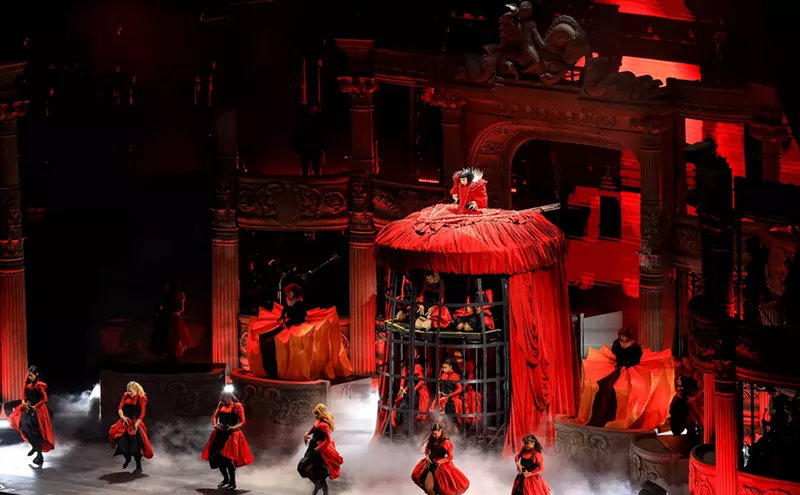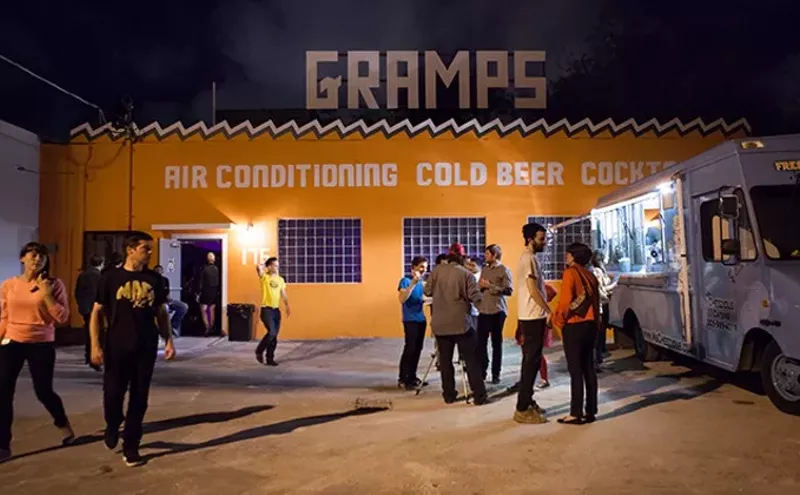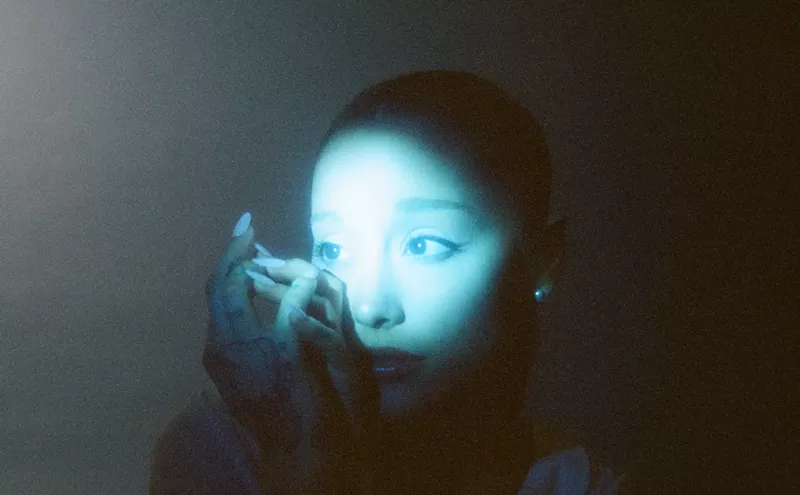Smith, a.k.a. Smitty, is now 26. He describes himself as "not the cutest guy in the room, not the most cut" and adds that before he was a star, "the one or two girls I did get probably felt sorry for me." On a recent Wednesday, he strolls through the Pembroke Lakes Mall and is mobbed by a small crowd pleading for his autograph. "I think they were playing my video at Foot Action," he comments.
He is a powerful player in the rap game now, but when Smitty was growing up, Miami didn't boast much of a presence in the hip-hop world. "You had to be from New York or LA," he says. "No one expected anyone from Miami to have lyrics."
So how did he find his way in?
In Los Angeles, Dr. Dre was shooting the 2001 movie The Wash when a stylist for Dre's videos, whom Smitty knew, told him: "You should come sneak on the set, try to spit for Dre," says Smitty. So he boarded a plane, flew cross-country, and stepped on the set about 6:00 a.m.
"I'm waiting for Dre one hour, two hours, three hours — we're on to eight hours now. The sun goes down," remembers Smitty. The only people remaining on the set were a few crew members; Smitty had been waiting sixteen hours, he recalls. "It's dark and, you know, late at night it gets cold, and this is on the beach, in Venice. It's cold; I'm underdressed," he says. Smitty thought he was dreaming when Dre finally appeared on the set and asked, "You ready?" So before returning to Miami, Smitty went to Dre's hotel room and got his chance to rap for the megaproducer.
Two weeks later, Dre telephoned Smitty and told him to fly back to LA. "They put us all in an apartment, got us a rental, and you'd come out and write for Dre.... It was like a factory," Smitty says of this rude awakening. "You always think, as an artist, you're the hottest and whatever you write is it, and you gotta think like that, but at the end of the day, I was thrown into a pile, and whoever stuck to the wall is what Dre would go with."
Disillusioned, Smitty left for New York in pursuit of East Coast impresario P. Diddy. "I was tight with Charlie Mack, Will Smith's bodyguard, who Puff had a lot of respect for. With Charlie Mack's approval, half the battle was already won," he says. Diddy immediately took on Smitty, and he continued to learn the process of writing for other artists. "First you just write something, generally, that you think they'd want to say. Like when I wrote for Puff, he'd say, öNa, I like that; I don't like this,' and then you kind of focus in on the things that he liked," Smitty says, and then adds with a tinge of bitterness of his experience with Diddy, which lasted through 2004: "Also, only a songwriter can do this ... put your heart and soul into every word that you write, mean every word of it, know this is the best thing you've ever written in your life, then have someone say, öIt's all right. You think you could write another one?'"
In 2005 Smitty wrote and recorded "Diamonds on My Neck." The single crossed state lines and broke for him. He didn't need to tour or perform it live for the song's popularity to spread. "If you have a glamorous appeal, that's when kids want to see you; it's not enough to be a good rapper with a hot joint," Smitty explains. "All [the record labels] hear is money. They don't hear the lyrics; they don't hear the beat; they just know what sounds like money. I didn't even have a diamond chain when I wrote öDiamonds on My Neck.' That was a song written totally based on what it could do for my career."
Smitty considers the effect money has on his songwriting: "My music would definitely be different if money didn't exist. öDiamonds on My Neck' wouldn't have been my single. But at the end of the day, I'm in a business, I'm playing a game.... My next record has to be a record of meaning, a record that's about me. That's why I'm calling it öLittle Haiti.'"
Smitty's feelings toward the rap game are conflicted, and a tinge of sadness rises in his voice when he talks about the music industry. That same emotion is evident in the lyrics of his song "Ghetto": "Life is more than money and gold/But being a paper chaser is all that I know." He explains, "That's not Smitty talking, that's Varick, that's me." Smitty also hints that the paper-chase side of the music business discourages originality. "Are you telling me that a million rappers have the same exact story? They all came up selling drugs; now they're rich, bustin' Glocks, fuckin' hoes? You never had problems with your mother, with your father? You never doubted yourself? It's scripting," he notes.
Despite any misgivings, he continues to make a go of it in the industry. And no matter how far his career takes him from the Magic City, Smitty says he will always remain connected to Miami by his family: "I have family everywhere — Overtown, North Miami, all over." His fans are also all over the city. He once thought they were only on the streets, until waiters in five-star restaurants began asking for his autograph. "That surprised me," he says.
In addition, women no longer "feel sorry" for Smitty. His rising-star status has created a female following, which he seems flattered by but also wary of. "It's not about using you. They just want to be around you. They just want to be able to say they're with such-and-such, they were in such-and-such's house. That's more important to them than money, and since rappers are the lowest on the celebrity totem pole, they see it as the easiest way for them to get into that lifestyle," Smitty remarks. "I would be perfect for someone like that to try to latch on to, because I'm not that big yet, so they could say they were with me from the beginning." He ponders this statement for a moment and then adds, "Hopefully I'll get to marry the woman I'm with now."












